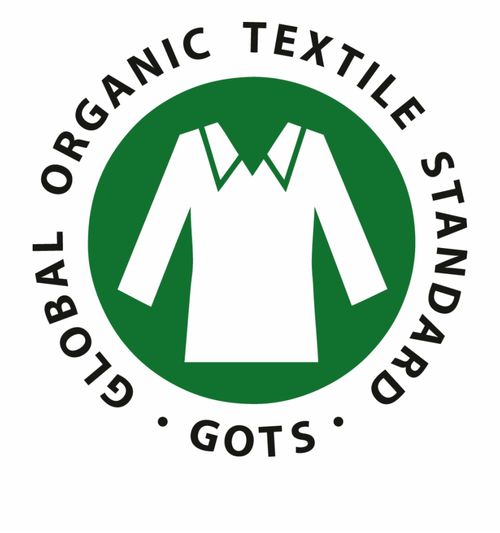Organic cotton: an ecological and natural material for our clothing
Cotton is the world's most widely produced plant fiber, widely used in the textile industry. Depending on whether it is grown conventionally or organically, its environmental impact varies considerably.
Organic cotton cultivation is the most environmentally friendly and ethical.
From sowing to harvest, organic cotton is grown without pesticides, insecticides, chemical fertilizers, or GMOs . Farmers use natural alternatives that preserve ecosystems , do not deplete the soil, and are safe for workers . In addition, organic cotton farming uses less water than conventional cotton.
Today, a very small portion of global cotton production is certified organic , about 2 million tons per year, compared to more than 17 billion tons of conventional cotton.

Why does organic cotton use less water?
It takes approximately 2,500 liters of water to produce one cotton T-shirt, which is the equivalent of 70 showers. While we don't have specific figures for organic cotton, we do know that it requires less water due to several factors:
- Organic soils retain water and moisture better, due to their high organic matter content, reducing the need for irrigation.
- The absence of toxic inputs in organic farming eliminates the need to dilute these substances, thus saving water.
In summary, although the water requirements of cotton plants remain similar, organic growing methods allow for significant savings.
How to Recognize Organic Cotton?
There is no strict legal definition for organic cotton. Certification is handled by international labels. These labels can certify the cotton crop, the finished product, or even an entire brand. For example, in weaving and garment factories, organic cotton is bleached with hydrogen peroxide rather than chlorine, and dyes must be free of carcinogens and heavy metals.
The GOTS (Global Organic Textile Standard) label is the most stringent standard for guaranteeing organic cotton textiles. For a product to be certified "organic" by GOTS, it must contain at least 95% certified organic fibers. Products "made with organic fibers" must contain at least 70%.

Organic Cotton, a preferred choice in ethical fashion
Organic cotton clothing is ideal for responsible consumption. Organic cotton is particularly recommended for clothing in direct contact with the skin , such as underwear.
Discover our organic cotton clothing for women and men, and make an ethical and sustainable choice for your wardrobe.



